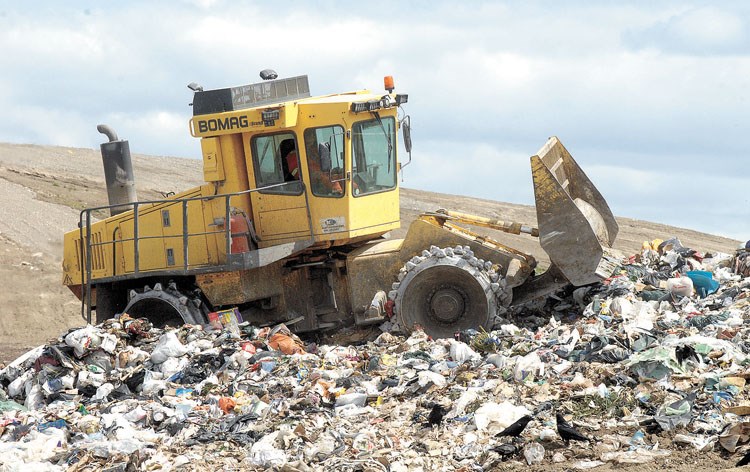The Regional District of Fraser-Fort George will be launching an education campaign next month, prior to increasing tipping fees on demolition, construction and land-clearing (DLC)waste in 2021.
In March the district board approved a phased increase in tipping fees some types of construction waste, including loads of mixed materials. The goal of the increased fees is to encourage builders to sort their material on site before bringing it to the landfill, and recycle material when possible, district manager of waste diversion programs Laura Zapotichny said.
"As we move into this soft launch, Sept. 1, we will be reaching out to our (local) haulers," Zapotichny said in a presentation to the board last week. "All of the recyclers of DLC materials were notified."
In January 2021, tipping fees will increase 50 per cent for mixed loads of construction waste, concrete, asphalt, masonry and rubble. Then in 2022, tipping fees on those materials will double – from $90 per tonne to $180 per tonne, or from $107.20 to $214.40 for loads containing concrete.
The fees on sorted loads of clean wood, scrap metal, stumps and treated wood will be cut in half to $45.
The charge for asphalt shingles, drywall and wood ash will remain the same at $90 per tonne, and tipping fees for asbestos and creosote will remain at $330.35 and $164.90 respectively.
Regional district staff will be notifying contractors about the coming changes, and providing information about where materials can be recycled. In addition, the district is planning to develop a printed guide and instructional online video on how to separate demolition materials prior to hauling them away.
"In order to accept recycled material, it has to be clean," Zapotichny said. "You get a load that is 90 per cent asphalt shingles, then you get a Tim Hortons cup and some plastic in there. The recyclers aren't going to accept that."
The amount of demolition and construction waste ending up in the landfill rose
more than 37 per cent between 2015 and 2019 - from 14,735 tonnes per year to 20,252 tonnes per year. Mixed loads made up 71 per cent of that material, district solid waste and waste diversion coordinator Nathan Hartnett said.
The soft launch period is "a very important step" that will allow contractors to start adapting their operations before facing additional fees, Harnett said.
"I'm strongly in favour of this moving forward," director Danielle Alan said. "I understand the education process tends to be slow."
Director Terri McConnachie, who is the executive officer for the Canadian Home Builders' Association Northern B.C. in addition to a regional district director and Prince George city councillor, said the change will mean some challenges for builders.
Contractors working on home renovation projects may have difficulty having room to separate materials, she said.
"It's tough when you're working on someone's property," McConnachie said. "It's not that it can't be done. (But) any additional cost will be passed on to the homeowners in the end."


